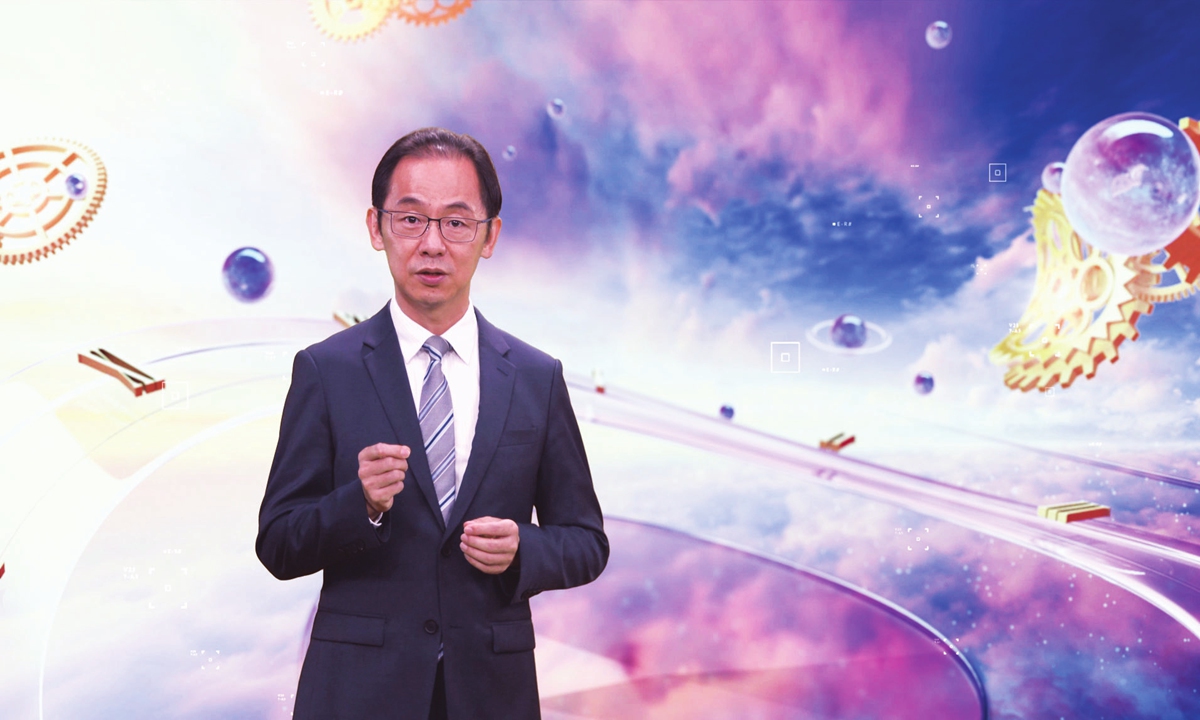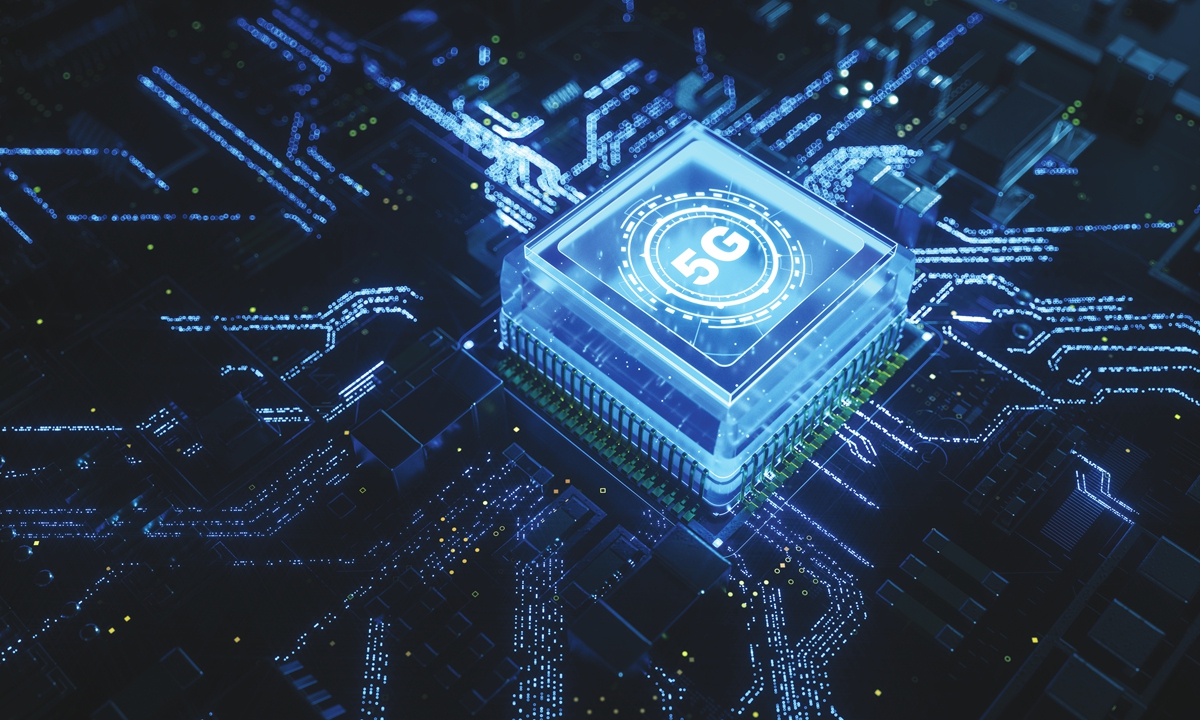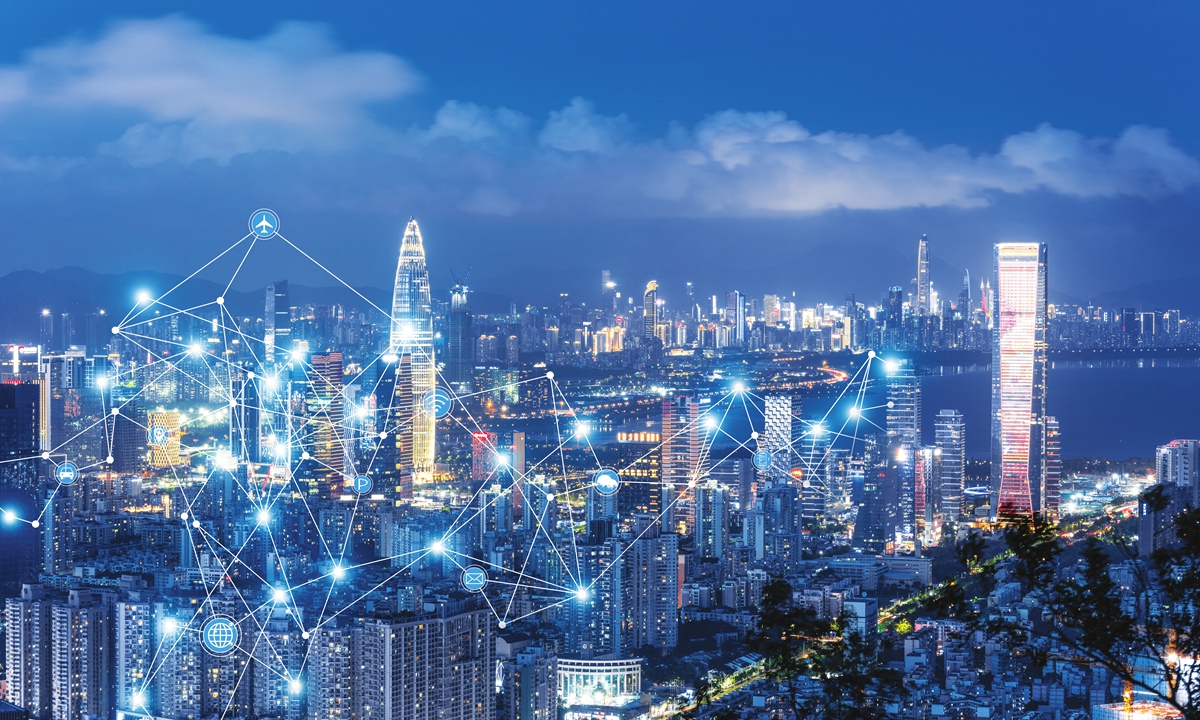Huawei embraces shared prosperity enabled by trust in tech
Source: Global Times Published: 2020/12/17 18:26:11
Huawei held the online TrustInTech Summit 2020 on Thursday, where communication industry experts, academia and economists from all over the world discussed the new challenges facing the world in 2020.

The summit pointed out that information and communications technology (ICT) has become the digital base for economic development and people's livelihood. As the commercial use of 5G accelerates, the world needs to embrace openness and cooperation, eliminate unnecessary resistance and fear of new technologies and transnational cooperation, and share the prosperity enabled by technology.
In 2020, ICT has played an indispensable role in the fight against the COVID-19 epidemic, promoting the resumption of work and production.
At the same time, the accelerated commercial use of 5G has enabled the digital transformation of thousands of industries. For example, STL Partners, a consultancy, predicted that the 5G application will help increase the global GDP by $1.6 trillion by 2030.
5G technology will help the manufacturing, energy, healthcare, transportation and other industries realize digital transformation and unleash new value in traditional industries, said STL Partners cofounder Chris Barraclough during the summit.
Huawei Enterprise's digital transformation expert Edwin Diender also introduced the application of new ICTs, such as 5G, artificial intelligence, big data and cloud computing, in epidemic prevention and control, in which remote diagnosis, intelligent monitoring and remote work and education have provided strong support.

By the end of 2020, 5G will be deployed on a global scale. More than 100 5G networks have been deployed in 47 countries. In the future, 5G will further support the consumer industry and e-commerce, and accelerate the maturity of virtual reality, augmented reality and other innovative services, according to GSMA CMO Stephanie Lynch-Habib.
"Our working groups are continually supporting and enhancing global standards," Lynch-Habib stressed.
"The industry began to accelerate 5G adoption, offering spectrum discounts, innovating business models, and driving industry transformation. That's never happened in the last 10 years," said Huawei Carrier Business Group CTO Paul Scanlan.
"Similar to how the first man-made satellite Sputnik was successfully launched in 1957, bringing humanity into the age of space exploration, as 5G matured in 2020, everything changed," Scanlan added.
The number of commercial 5G networks worldwide is expected to reach 180 by the end of 2020, according to Global Mobile Trends 2021 released by the GSMA on Tuesday. Consumer adoption of 5G will reach 20 percent of global mobile connections by 2025.

Due to the epidemic and economic contraction, there has been more resistance to transnational cooperation and scientific and technological innovation, and there has been a trend of isolation and technological decoupling.
International investor Jim Rogers stressed the importance of avoiding protectionism.
"Unilateralism, especially in economics and technology, is bound to go wrong. Foreign policy should be around opening. We need to avoid protectionism, especially in technology," said Rogers. He also said that protectionism was bad for the world as seen throughout history.
What technology has done is having created a network that connects countries and people. "[In today's world], it's less about competition, rivalry, and substitution, and more about collaboration, complementarity, and cooperation," said Jin Keyu, a professor at the London School of Economics.
In response to the current situation, Ryan Ding, executive director of the Board and president of Carrier BG of Huawei, called for building trust and cooperation in ICT industry, cross-industry cooperation and business environment.
"Politics should stay away from technical issues. We need to remain fair and open to drive technological cooperation. Industry cooperation is not a zero-sum game. If an isolated approach is adopted now, while new technology is unlocking social and business value at a faster rate, the victim will not be one company," Ding added.
The whole world needs to work together to realize the social recovery after the crisis. And an open and trusted ecosystem are necessary for everyone to share the prosperity enabled by technology.
The TrustInTech Summit 2020 was held online due to the COVID-19 epidemic. Found in 1987, Huawei became a global leading provider of ICT and intelligent terminals. It has business in 170 countries and regions, serving more than 3 billion people.
Newspaper headline: Digital dividends

Ryan Ding, executive director of the Board and president of Carrier BG of Huawei Photo: Courtesy of Huawei
The summit pointed out that information and communications technology (ICT) has become the digital base for economic development and people's livelihood. As the commercial use of 5G accelerates, the world needs to embrace openness and cooperation, eliminate unnecessary resistance and fear of new technologies and transnational cooperation, and share the prosperity enabled by technology.
In 2020, ICT has played an indispensable role in the fight against the COVID-19 epidemic, promoting the resumption of work and production.
At the same time, the accelerated commercial use of 5G has enabled the digital transformation of thousands of industries. For example, STL Partners, a consultancy, predicted that the 5G application will help increase the global GDP by $1.6 trillion by 2030.
5G technology will help the manufacturing, energy, healthcare, transportation and other industries realize digital transformation and unleash new value in traditional industries, said STL Partners cofounder Chris Barraclough during the summit.
Huawei Enterprise's digital transformation expert Edwin Diender also introduced the application of new ICTs, such as 5G, artificial intelligence, big data and cloud computing, in epidemic prevention and control, in which remote diagnosis, intelligent monitoring and remote work and education have provided strong support.

5G Illustrations: VCG
By the end of 2020, 5G will be deployed on a global scale. More than 100 5G networks have been deployed in 47 countries. In the future, 5G will further support the consumer industry and e-commerce, and accelerate the maturity of virtual reality, augmented reality and other innovative services, according to GSMA CMO Stephanie Lynch-Habib.
"Our working groups are continually supporting and enhancing global standards," Lynch-Habib stressed.
"The industry began to accelerate 5G adoption, offering spectrum discounts, innovating business models, and driving industry transformation. That's never happened in the last 10 years," said Huawei Carrier Business Group CTO Paul Scanlan.
"Similar to how the first man-made satellite Sputnik was successfully launched in 1957, bringing humanity into the age of space exploration, as 5G matured in 2020, everything changed," Scanlan added.
The number of commercial 5G networks worldwide is expected to reach 180 by the end of 2020, according to Global Mobile Trends 2021 released by the GSMA on Tuesday. Consumer adoption of 5G will reach 20 percent of global mobile connections by 2025.

5G
Faced with the accelerated application of new technologies and major breakthroughs this year, several attendees at the summit noted that humankind is always full of distrust and fear for new things, just as what the UK faced in the 19th century when factories were destroyed with the trend toward automation.Due to the epidemic and economic contraction, there has been more resistance to transnational cooperation and scientific and technological innovation, and there has been a trend of isolation and technological decoupling.
International investor Jim Rogers stressed the importance of avoiding protectionism.
"Unilateralism, especially in economics and technology, is bound to go wrong. Foreign policy should be around opening. We need to avoid protectionism, especially in technology," said Rogers. He also said that protectionism was bad for the world as seen throughout history.
What technology has done is having created a network that connects countries and people. "[In today's world], it's less about competition, rivalry, and substitution, and more about collaboration, complementarity, and cooperation," said Jin Keyu, a professor at the London School of Economics.
In response to the current situation, Ryan Ding, executive director of the Board and president of Carrier BG of Huawei, called for building trust and cooperation in ICT industry, cross-industry cooperation and business environment.
"Politics should stay away from technical issues. We need to remain fair and open to drive technological cooperation. Industry cooperation is not a zero-sum game. If an isolated approach is adopted now, while new technology is unlocking social and business value at a faster rate, the victim will not be one company," Ding added.
The whole world needs to work together to realize the social recovery after the crisis. And an open and trusted ecosystem are necessary for everyone to share the prosperity enabled by technology.
The TrustInTech Summit 2020 was held online due to the COVID-19 epidemic. Found in 1987, Huawei became a global leading provider of ICT and intelligent terminals. It has business in 170 countries and regions, serving more than 3 billion people.
Newspaper headline: Digital dividends
Posted in: PRESS RELEASE